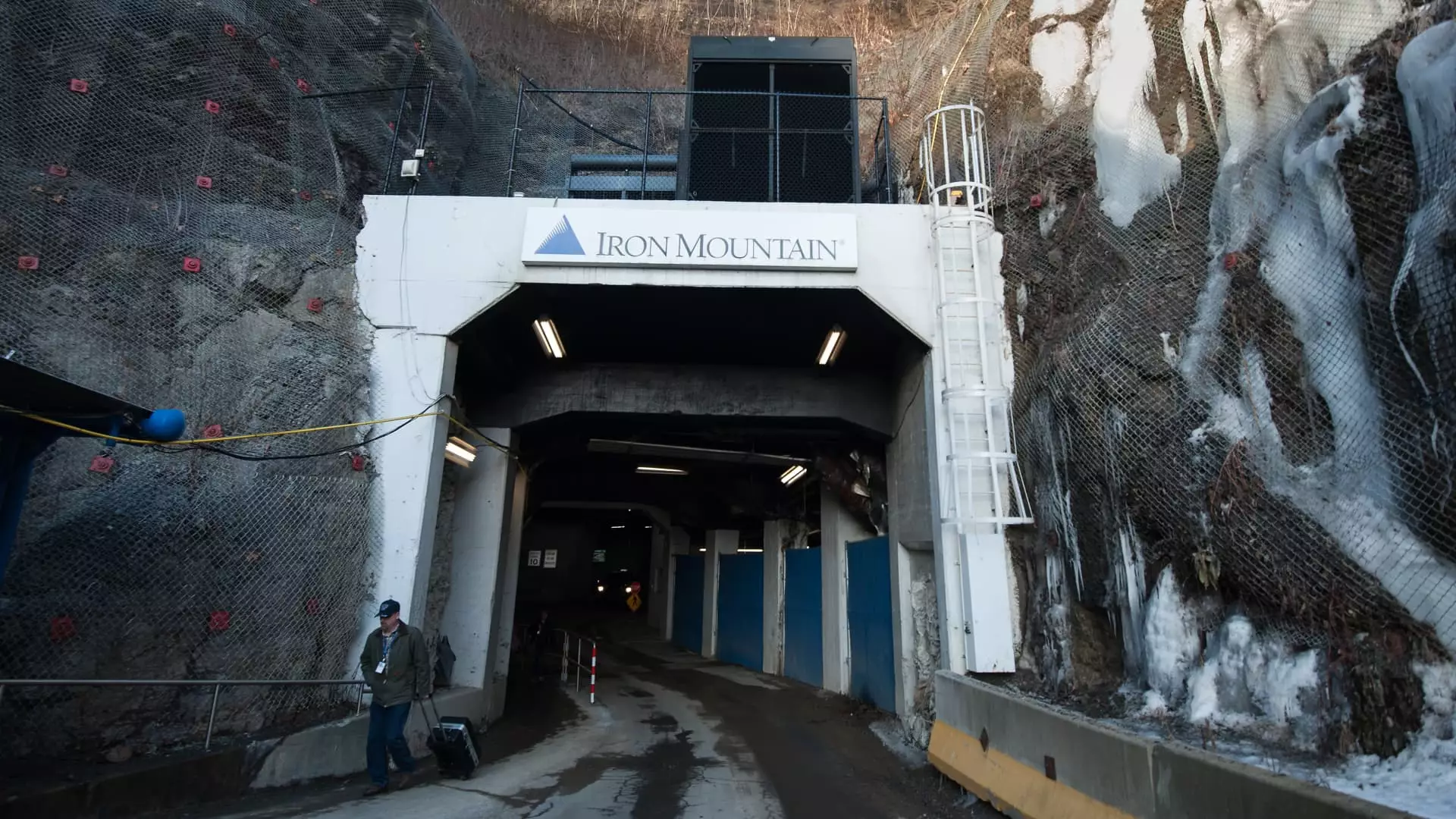The recent exchange involving Elon Musk and President Donald Trump in the Oval Office brought the issue of government inefficiency into sharp focus. Musk’s critical remarks regarding the Department of Government Efficiency (DOGE) highlighted longstanding concerns about how the federal bureaucracy manages essential functions, particularly the storage and processing of retirement paperwork for federal employees. By using a limestone mine as a metaphor for outdated practices, Musk illuminated a significant topic: the tension between innovation and traditional methods.
Musk’s vivid description of a limestone mine, established in 1955, became a focal point in discussions about governmental inefficiency. He remarked, “Doesn’t that sound crazy?” when referencing the mine’s elevator speed as a bottleneck in processing retirement applications—a stark reminder of how antiquated systems can hinder modern operational efficiency. The mine, managed by Iron Mountain, a company specializing in data storage, faced unexpected backlash when Musk’s comments spurred fears about the security and viability of its government contracts. The result was a notable decline in the company’s stock price, which dropped over 10% in a week, underscoring Wall Street’s trepidation regarding the potential for decreased future earnings.
Iron Mountain’s CEO, Bill Meaney, responded by framing the situation as a “growth opportunity.” He argued that the company’s digital transformation efforts align with the government’s push for efficiency, effectively leveraging the renewed scrutiny to solidify their corporate position. Beyond surface-level concerns, Meaney’s remarks suggested an understanding that the relationship between the private sector and government could evolve positively, providing a roadmap for mutual benefit even amid criticism.
Musk’s criticism also revolved around an essential theme: the federal government’s sluggishness in adapting to modern needs. By citing the cumbersome nature of processing retirement paperwork—a mere 10,000 applications a month—Musk challenged whether the government could keep pace with the increasing demands of its workforce. In a world dominated by rapid technological advancement, the push to modernize becomes imperative, with antiquated systems posing significant barriers.
The establishment of DOGE aims to identify inefficiencies across governmental operations. That Musk is leading the charge speaks volumes about the role of private sector innovation in reforming governmental procedures. Yet, as he highlighted, the peculiarities of the existing system—where physical documentation is stored hundreds of feet underground—merely serve to draw attention to broader systemic issues. Skepticism remains, however, as many grapple with whether bureaucracy can truly evolve from within or if external pressures will be necessary to motivate change.
In the wake of Musk’s remarks, financial analysts assessed the implications for Iron Mountain’s performance. **Wells Fargo** analyst Eric Luebchow characterized Wall Street’s reaction as an overreaction, underscoring the idea that Iron Mountain’s diversified client base mitigates the potential impact of losing a government contract. Additionally, termination fees could cushion the company from abrupt financial losses if contracts were to be renegotiated or severed altogether.
The broader financial community pointed to the incongruity between Musk’s comments and the reality of Iron Mountain’s operational success. With revenues heavily weighted towards their digital and data center services—accounting for $130 million—investors were reminded that the loss of a single government contract does not jeopardize the company’s overall financial health. Furthermore, Barclays analyst Brendan Lynch emphasized that legal requirements for record-keeping suggest continued demand for Iron Mountain’s services, regardless of potential shifts in governmental strategies.
The discourse between Musk and Trump, propelled by a scandalous observation about government inefficiencies, sets the stage for profound discussions about the future of federal operations. By placing such a spotlight on the intersection of technology, efficiency, and government practices, Musk has catalyzed a necessary conversation on reform. Iron Mountain’s dual role as a government contractor and a participant in the digital transformation landscape reflects the complexity of modern-day U.S. bureaucracy. The challenge will lie in whether these entities can adapt and thrive in an environment that increasingly demands agility and innovation.
As new initiatives emerge in response to longstanding inefficiencies, the opportunity for stakeholders in both the government and private sectors to champion transformation is ripe. This case serves as a cautionary tale and a guiding lesson, illustrating that while criticisms can produce immediate tensions, they can also yield pathways for meaningful improvements in how we manage public resources. Ultimately, the journey toward efficiency must involve collaborative efforts aimed at not merely cutting costs, but innovating methods that guarantee a more responsive and responsible government.

Leave a Reply